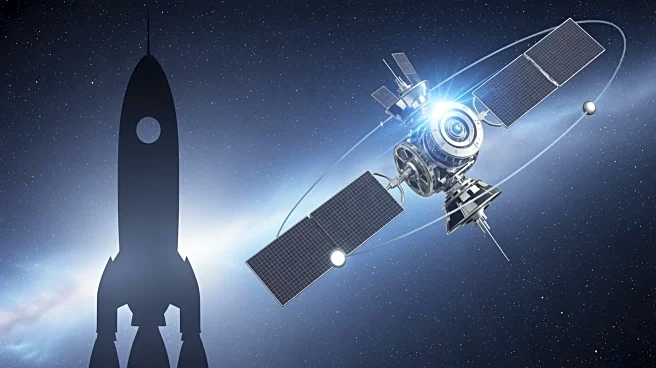What's Happening?
SpaceX is set to achieve two significant milestones with the launch of its Falcon 9 rocket today. The rocket will carry 28 Starlink broadband satellites from Cape Canaveral Space Force Station in Florida. This launch will bring the total number of Starlink satellites deployed
by SpaceX to over 10,000. Additionally, this marks the 31st flight for the Falcon 9's first stage booster, setting a new record for the number of launches by a single booster. SpaceX will stream the launch live, allowing viewers to witness the event as it unfolds. The Starlink project, which began with prototype launches in 2018, aims to provide global broadband service and has already reached millions of customers worldwide.
Why It's Important?
The launch signifies a major advancement in SpaceX's Starlink project, which is crucial for expanding global internet access. By surpassing the 10,000 satellite mark, SpaceX is solidifying its position as a leader in satellite internet services. The record-breaking reuse of the Falcon 9 booster highlights SpaceX's commitment to reducing spaceflight costs and increasing efficiency, which could have significant implications for the future of space exploration and commercial satellite deployment. The success of Starlink could drive competition in the satellite internet market, potentially lowering costs and improving services for consumers.
What's Next?
SpaceX plans to continue expanding its Starlink constellation, with permission to deploy up to 12,000 satellites and potential plans for more than 30,000. The company is also developing the fully reusable Starship rocket, which aims to further reduce costs and enable ambitious projects like Mars colonization. The continued success of Starlink and the Falcon 9 booster reuse could influence other space companies to adopt similar strategies, potentially accelerating advancements in space technology and exploration.
Beyond the Headlines
The extensive deployment of Starlink satellites raises questions about space debris and the long-term sustainability of satellite constellations. As more satellites are launched, the risk of collisions and the creation of space debris increases, which could impact future space missions. SpaceX's approach to satellite deorbiting and reuse may set industry standards for responsible satellite management.


















